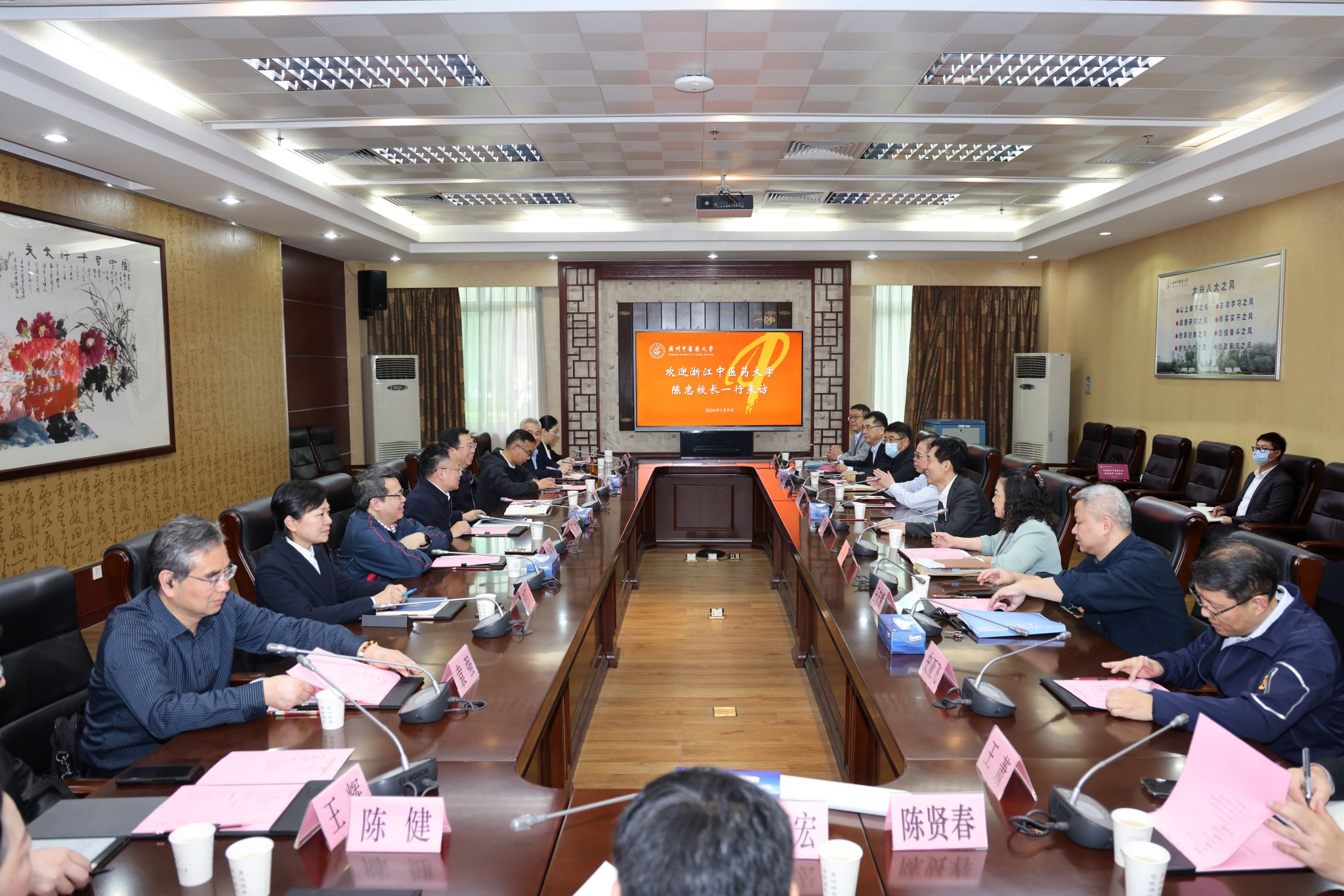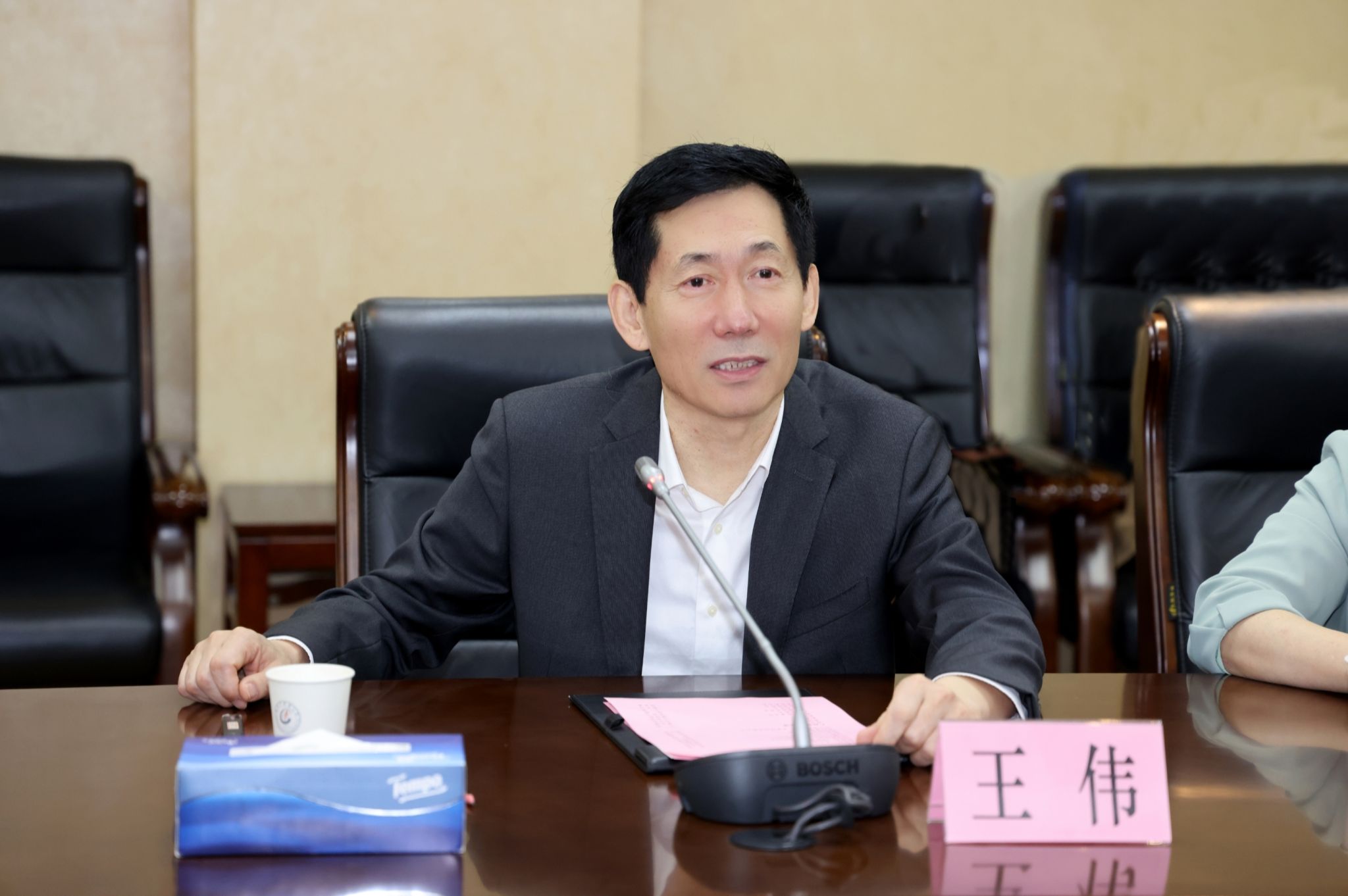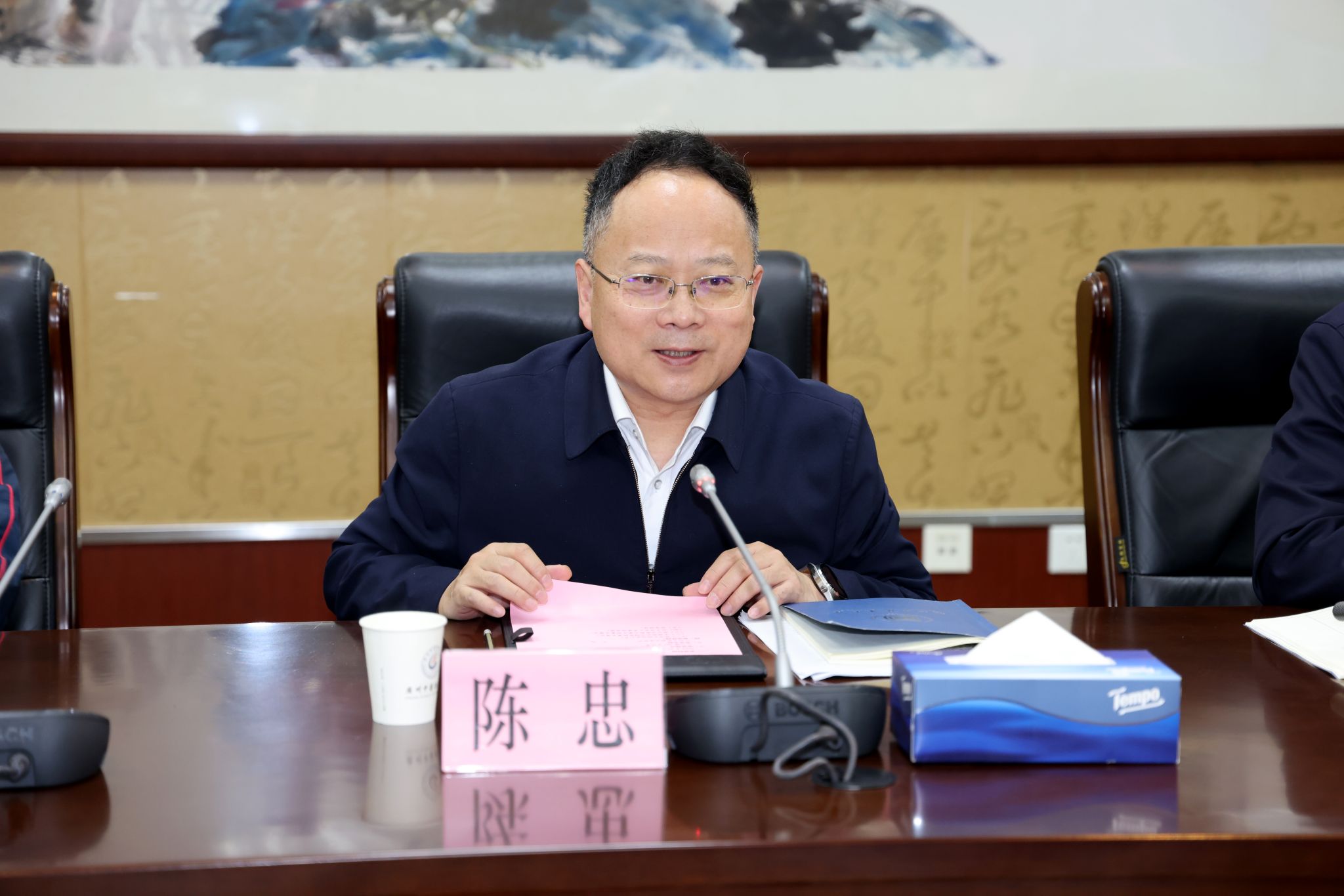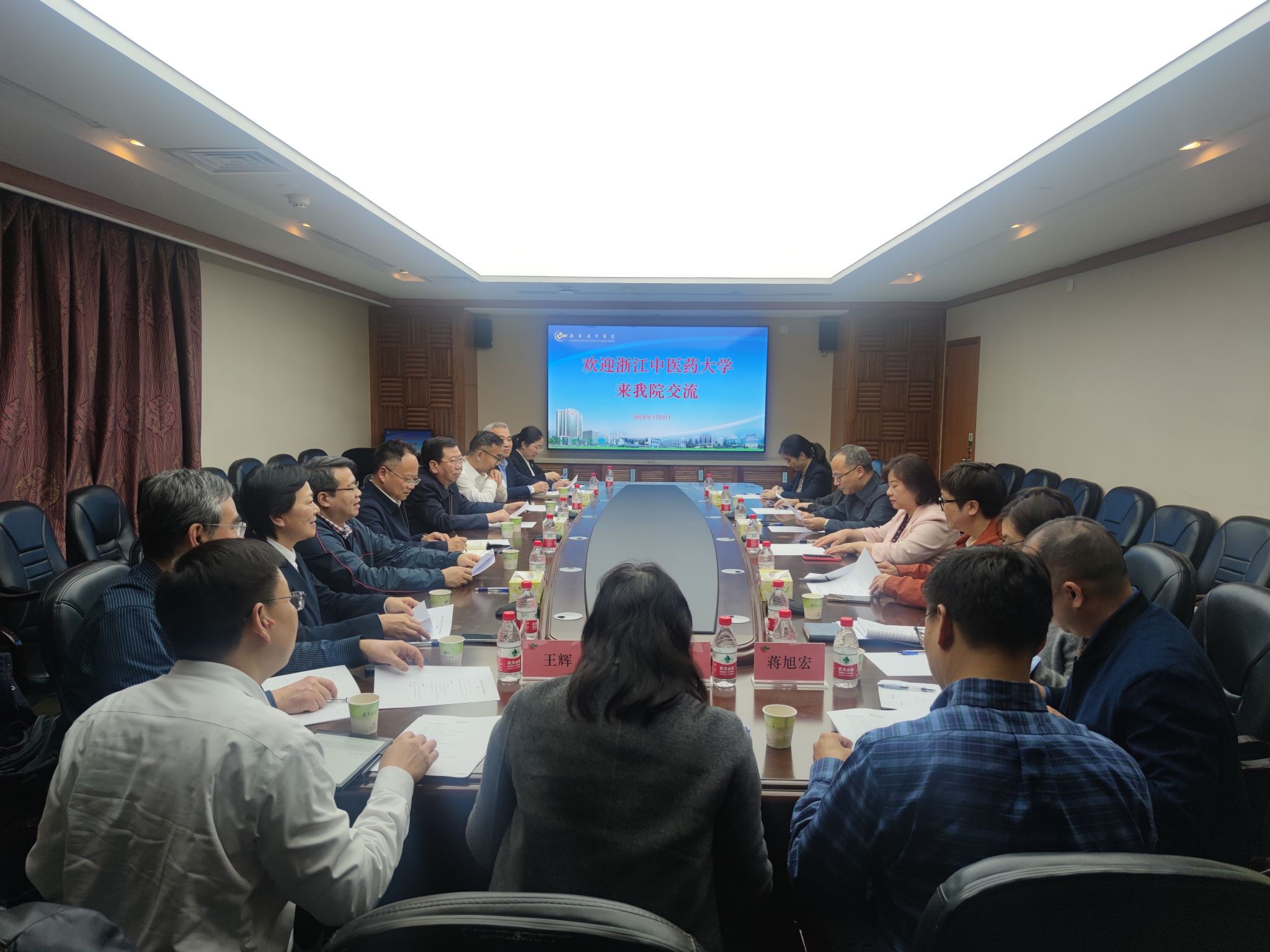On January 9, President Chen Zhong, Vice Presidents Wu Chengliang and Wen Chengping, from Zhejiang Chinese Medical University, visited the university for research, and President Wang Wei, Vice Presidents Pan Huafeng, Liu Zhongqiu and Wang Hongbin from our university attended the symposium.

Wang Wei welcomed the delegation led by Chen Zhong and explained the development history and current situation of the university, and introduced the achievements of the university in recent years in terms of discipline construction, talent training, faculty introduction and training, scientific research platform construction and scientific research achievement application. Wang Wei hopes that the two universities can further deepen exchanges and cooperation in the construction of national scientific research platforms and the application of major scientific research projects, and be committed to improving the quality of Chinese medicine talent training guided by the major needs of the country, so as to jointly make new and greater contributions to regional economic development and social progress.

Chen Zhong congratulated our university on its achievements in the construction of a “double first-class” and high-level university, and briefly introduced the general situation of Zhejiang Chinese Medical University, focusing on the cooperation between the university and the local government to build a research institute and explore the main role of the secondary college through the reform of the system and mechanism, and listed the specific practice and results of building a first-class university of traditional Chinese medicine. Chen Zhong hopes that the two universities will continue to strengthen exchanges and cooperation in discipline construction, talent training and faculty introduction, so as to jointly promote the inheritance, innovation and development of traditional Chinese medicine.

At the symposium, both parties also conducted in-depth exchanges on the operation mode of the hospitals jointly constructed by the university and government, the operation mode of the scientific research platforms of the university headquarters, the construction of the scientific research platforms of the affiliated hospitals, the performance evaluation and recognition of faculty post-doctoral researchers, the evaluation indicators of traditional Chinese medicine talents, the guidance of undergraduate teaching policies of secondary training units, and the construction of graduate management and training system. Both stated that in the future, they will continue to strengthen communication and exchanges, learn from each other’s good experience and practices, and promote the common development of Chinese medicine in the two universities.
The delegation from Zhejiang Chinese Medical University also visited the Second Affiliated Hospital of the university.

Heads of relevant departments of Zhejiang Chinese Medical University and our university participated in the research activities.


